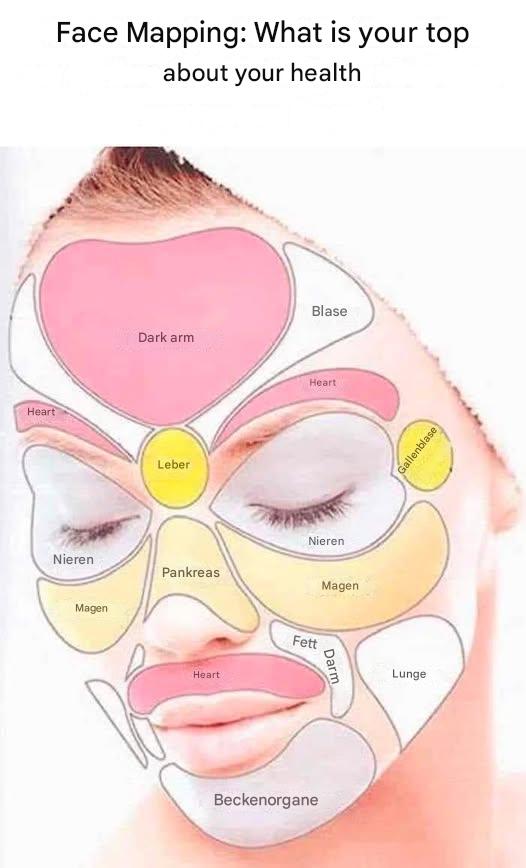What the Science Says
Although face mapping is based on millennia-old practices, the scientific evidence for this technique is limited. However, some research shows that certain skin conditions can be linked to internal health problems. For example, a 2019 study found regional differences in the face in terms of water loss, blood flow, and sebum production, suggesting that certain parts of the face may be affected by lifestyle changes.
In modern medicine, the main causes of skin problems are:
- Hormonal imbalances, such as excess testosterone
- High Duty
- Excessive sebum production, especially in the “T-zone” (forehead, nose and chin)
- Poor hygiene or insufficient sleep
- Poor gut health
- Food allergies or immune reactions
- Solar radiation and environmental influences
Although face mapping has not been scientifically proven, it is not considered dangerous and can provide a complementary approach for those whose traditional treatments have not yielded satisfactory results.
Chinese facial mapping or “mien shiang” is a practice that is more than 3000 years old. Based on the theory of energy flows (Qi) along the meridians, she postulates that imbalances in the body manifest in the face. Rashes, redness, and other problems are thought to reflect disorders in internal organs such as the liver, kidneys, and spleen.
According to traditional Chinese medicine, poor liver health can lead to inflammation and rashes on the face due to inadequate detoxification of the body. Other factors that affect skin health include stress, an unbalanced diet, and lack of sleep.
Dermalogica Mapping
The Dermalogica brand has developed its own version of facial mapping that combines traditional Chinese medicine practices with modern scientific knowledge. Their experts use a method that analyzes the skin based on hormonal fluctuations, irritation from certain products, and damage from sun exposure.
Dermalogica’s® face mapping service provides personalized recommendations based on skin condition and lifestyle. These include tips on how to avoid irritation caused by skincare products, prevent sun damage, manage stress, and improve hydration.
Inference
Although face mapping is not supported by strong scientific evidence, it could provide useful insights for certain types of skin problems. If other treatments have not yielded satisfactory results, this could be an alternative method to explore, especially for those interested in traditional medicine.
